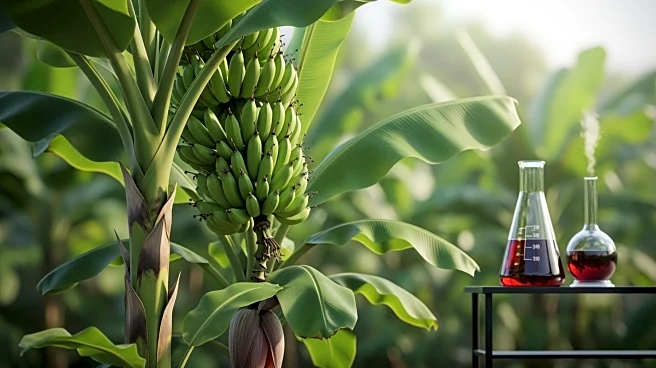What's Happening?
A new banana variety, QCAV-4, developed by the Queensland University of Technology, is showing significant resistance to the Panama disease, particularly the Tropical Race 4 (TR4) strain, in Australia's Northern Territory. This genetically enhanced banana is the first
to be approved for commercial cultivation in Australia with built-in resistance to TR4. The disease, caused by the fungus Fusarium oxysporum, has been a persistent threat to global banana cultivation since the 1960s. QCAV-4 has demonstrated resilience by surviving in TR4-infected soil for nearly a decade, outlasting traditional Cavendish bananas. The key to its resistance is a gene sourced from a wild banana relative, which enables early detection and defense against the TR4 fungus.
Why It's Important?
The development of QCAV-4 is crucial as it offers a potential solution to the global threat posed by Panama disease, which jeopardizes banana supplies worldwide. The disease's ability to remain in soil for decades makes affected land unsuitable for banana farming without resistant plants. The success of QCAV-4 could lead to a significant shift in banana cultivation practices, potentially safeguarding the industry from future outbreaks. This development is particularly significant for regions heavily impacted by TR4, such as Central and South America and the Philippines, where there is growing interest in the variety.
What's Next?
While QCAV-4 shows promise, its widespread commercial planting is not yet underway, as the focus remains on trial production. The Australian Banana Growers’ Council has not planned an immediate commercial rollout, partly due to limited stock and mixed public sentiment towards genetically modified foods. However, if QCAV-4 reaches plantations in the Northern Territory by 2027, it would mark a major milestone. Global interest in the variety is expected to increase, potentially leading to international collaborations and further research into disease-resistant crops.


















